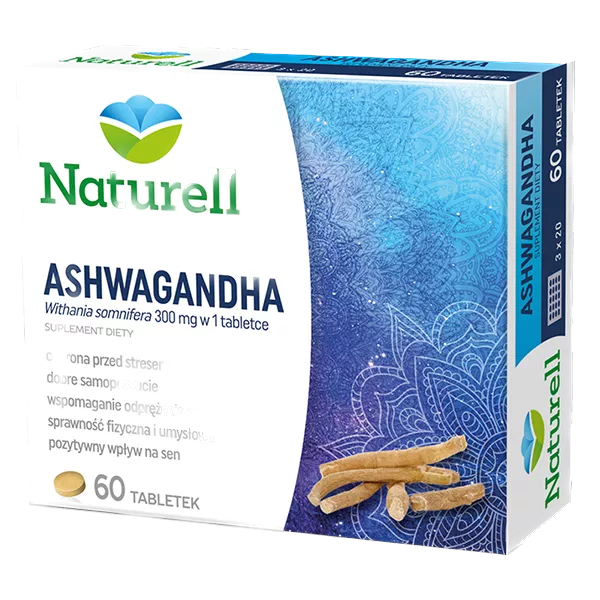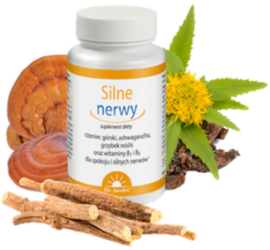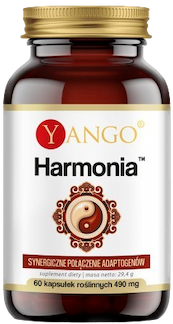Ashwagandha contraindications: who cannot take it?
Ashwagandha is an adaptogen with interesting health properties, but not everyone can use it.


Learn more about our editorial process
.

Learn more about our editorial process
.

Learn more about our editorial process
.

Learn more about our editorial process
.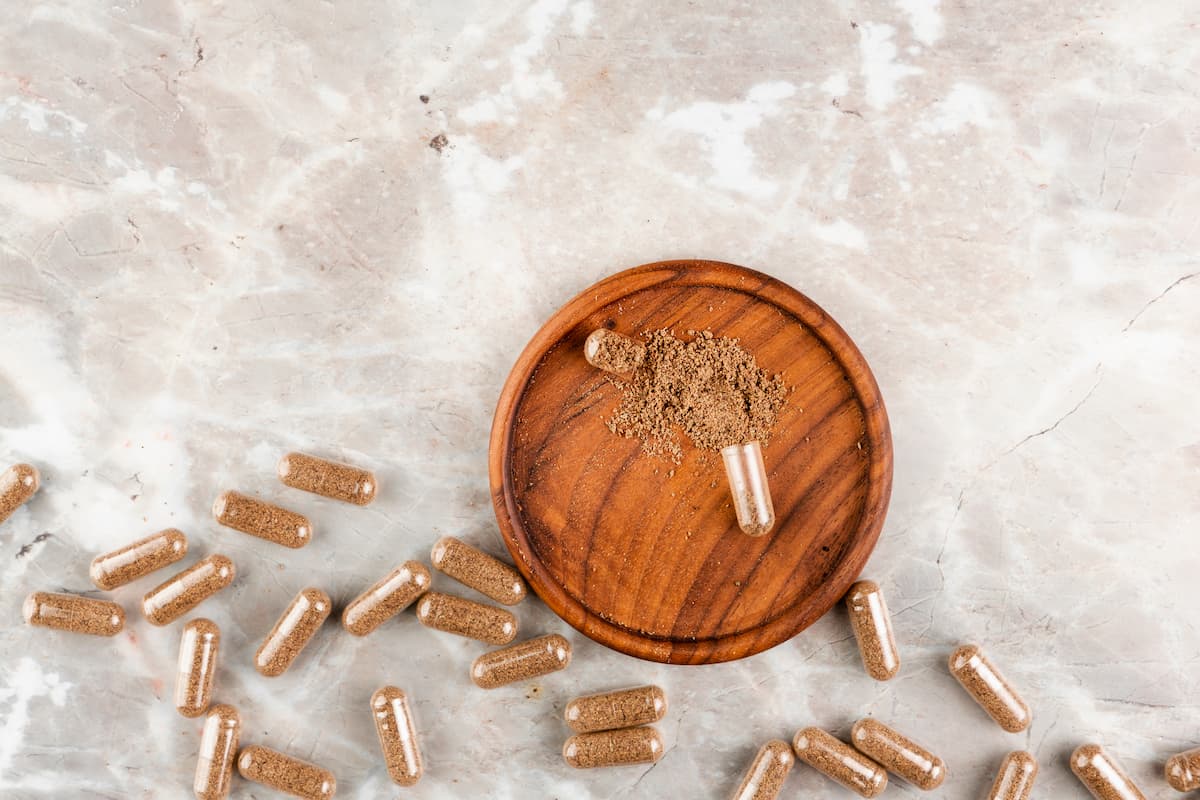
Why you can trust us
Articles on Natu.Care are written based on scientific research, data from government websites and other reliable sources. The texts are written in cooperation with doctors, nutritionists and other health and beauty experts. Articles are reviewed before publication and during significant updates.
.Learn more about our editorial process
.Information about advertisements
Content on Natu.Care may contain links to products from the sale of which we may receive a commission. When creating content, we adhere to high editorial standards and take care to be objective about the products discussed. The presence of affiliate links is not dictated by our partners, and we select the products we review ourselves completely independently.
.Learn more about our terms and Conditions
.The popularity of ashwagandha is on the rise, and the curious adaptogen is being tried by many people - tired, sleep-deprived, stressed or dreaming of better fitness in training and in... the bedroom. It is, after all, a plant that promises the 'strength and vitality' of a horse.
Unfortunately, ashwagandha is not suitable for everyone. Instead of a fast stallion or an energetic mare, it can make you... a muddled pony. Together with my doctor, I have prepared a list of contraindications and interactions of ashwagandha with medications and supplements.
From this article you will learn:
- Who can't take ashwagandha. .
- What not to combine ashwagandha with. .
- What to use instead of ashwagandha. .
See also:
.
- Ashwagandha
- Ashwagandha - morning or night? .
- Ashwagandha - when does it start working? .
- Ashwagandha - dosage
- Ashwagandha - side effects
- Ashwagandha - what not to combine with? .
- Indian ginseng
- Adaptogens
Ashwagandha - contraindications
.
Contraindications to the use of ashwagandha areand:
- .
- pregnancy, .
- lactation, .
- age under 18 years old,
- diagnosed with cancer,
- lactation, .
- diagnosed cancer, .
- diagnosed autoimmune disease, disease thyroid disease, lupus, multiple sclerosis or rheumatoid arthritis, .
- bleeding disorders, .
- ulcers, .
- diseases liver, .
- adherence to sleep, sedative, anti-anxiety medication, .
- planned surgery, .
If you have any doubts - ask your doctor. A specialist knows your condition best, and what medications and supplements you are taking, so he or she can most accurately advise you on whether ashwagandha is right for you.
Why ashwagandha is not indicated in these situations?
.
Pregnancy and lactation
.
Pregnancy and lactation is a sensitive time in a woman's life, and there are no reliable scientific studies that have tested the use of ashwagandha during this periodand. It would be difficult to find volunteers who would take such a risk, and the moral issues of such a study remain.
The effects of this adaptogen on pregnancy and the fetus and the effects of the compounds in this plant on the breastfed baby are unknown. A 2012 review of studies published in Frontiers in Neuroscience suggests that the use of high doses of ashwagandha may induce miscarriageand.
The use of ashwagandha during pregnancy and lactation is not recommended. Any dietary supplement or medication you use during this period, must be discussed with your doctor, so that your and your baby's health and life are safe.
Under 18 years of age
.
Adaptogens are not recommended for use in people under 18 years of age. The effect of this plant on the psychophysical development and behaviour of a developing child or adolescent is unknown - there is a lack of scientific research in this area.
There is a lot going on in a young person's body at the developmental stage, in almost every system. Ashwagandha, as a potent adaptogen, could potentially interfere with this process, and the effects of this are unknownand.
Child and adolescent physiology differs from that of adults. Kidneys and liver work differently, and doses of drugs or dietary supplements must be lower than those used by adults..
 .
.
Kacper Nihalani doctor
.
Cancer
.
Ashwagandha affects a biochemical pathway, called cell cycle checkpoints, that either exacerbates the effects of the disease or can nullify the effect of treatmentand.
In the course of cancer, these checkpoints do not work well, leading to irregular cell growth. Controlling these checkpoints is important in cancer treatment, and ashwagandha can interfere with this process.
This means that this plant can potentially interfere with the treatment process and act as a saboteur. In addition, according to research studies, ashwagandha can increase testosterone levels, so it should be avoided in patients with hormone-sensitive prostate cancerand.
Autoimmune diseases
.
In healthy individuals, the immune system protects the body from foreign substances and infections. In autoimmune diseases, there is an "error" in recognizing the body's own cells as a threat, so the immune system begins to attack and destroy the body's own healthy cells, tissues or organsand.
.
Autoimmune diseases areand:
.
- Diseases thyroid, e.g. Hashimoto's disease, Graves-Basedov's disease, .
- Lesniowski-Crohn's disease, .
- rheumatoid arthritis (RA), .
- black eye disease, .
- lupus erythematosus, .
- psoriasis, .
- alopecia areata,
- acanthosis nigricans,
- dermatitis, dermatitis
- celiac disease,
- diabetes, and
- type 1 diabetes, .
In people with autoimmune disorders, the immune system is overactive. Ashwagandha can further stimulate it, which can be harmful..
 .
.
Kacper Nihalani doctor
.
According to some studies, ashwagandha can lower blood sugar levels, which seems to be a good option for people with diabetesand. However, these patients are usually already taking blood sugar-lowering medications, so adding ashwagandha can cause their blood sugar to drop too high, which can be dangerous to their health .
Other diseases
.
- Stomach ulcers. People with this ailment should not take ashwagandha, as it can irritate the digestive tract and exacerbate unpleasant symptoms . .
- Anomalous blood pressure. Research suggests that ashwagandha has blood pressure-lowering effects . In people being treated for abnormal blood pressure, there may be an interaction between the medications used for this and ashwagandha, or an unexpected drop in blood pressureand. .
- Hepatic diseases. In 2021-2023, several cases of patients who developed liver damage due to excessive use of ashwagandha were described. This is a potential risk, especially for people who suffer from diseases of this organand. .
Interactions with medicines and dietary supplements
.
Ashwagandha is not just a plant. It is a powerful adaptogen with high biological activity. It may interact with medicines or dietary supplements containing specific active substancesand.
|
Group of drugs . |
Examples of medicines available in Poland . |
|
Blood thinners |
Warfin, Pradaxa, Xarelto, Aspirin, Acard . |
|
Regulating hormones thyroid |
Letrox, Eurhyrox, Thyrozole . |
|
Immonosuppressants |
Metypred, Prograf, Equoral, Endoxan, Azathioprine . |
|
Used in the treatment of depression, anxiety . |
Trittico, Dulsevia, Pramolan, Anafranil, Amitriptyline . |
|
Antiepileptic . |
Sabril, Zonisamidum Neuraxpharm, Milocardin, Rivotril, Hydacorn |
|
Sleepy |
Zopiclone, Zolpidem, Trittico, Miansen, Mirtor, Doxepin |
|
Antidiabetic . |
Pioglitazone, Metformax, Amaryl, Forxiga, Jardiance |
|
Regulating high blood pressure |
|
| . |
Torsemed, Captopril, Prestarium, Telmizek, Hydrochlorothiazide |
|
Antihistamines |
Allertec, Clatra, Lirra Gem, Zyrtec, Clatra . |
|
Anticonceptive |
|
| Allertec. |
Yasmin, Cilest, Microgynon, Diane-35, Limetic . |
The table includes examples of medications, so if you are using others not listed in the table, all the more reason to advise your doctor before using ashwagandha.
Patients taking benzodiazepines, anticonvulsants or antidepressants should absolutely avoid ashwagandha, as this plant can exacerbate sedative, as well as GABAnergic, that is, reducing neuronal activity and inhibiting nerve signal transmission.
Planned surgical procedures
.
Data from animal studies show that ashwagandha may have a sedative or calming effect, slowing the central nervous systemand. Medications used during and after surgery in combination with ashwagandha may increase the slowing of the nervous system.
Stop taking ashwagandha at least two weeks before surgery and inform your doctor of any medications or supplements you are taking.
Summary
.Always advise your doctor before starting ashwagandha supplementation. It is a powerful adaptogen that can benefit your health and well-being, but can also harm you if you take it against contraindications.
See also: Ashwagandha - side effects
.
Ashwagandha - what does it help with?
.
Ashwagandha (also known as languid plant or Indian ginseng) is one of the best studied adaptogensand for its properties. Results to date suggest that systematic use of ashwagandha :
- .
- reduces mental stress and tension, .
- positively affects mood and motivation, .
- improves memory and concentration, .
- increases performance and endurance, .
- enhances regeneration, .
- increases testosterone and thyroid hormones, .
- alleviates some symptoms during menopause, .
- supports sexual health in men and women, .
- improves male fertility, .
- has antioxidant and tonic effects on the body.
The consumption of ashwagandha is safe, well tolerated and free of adverse effects for most peopleand.
.
To experience the benefits of consuming ashwagandha, it should be taken 8-12 weeks. After that, it is recommended to take a break. Do not exceed the manufacturer's recommended daily dose to avoid side effects.
See also compositional analyses of dietary supplements:
.
- Ashwagandha KSM-66: the purest extract
- Ashwagandha Naturell
- Ashwagandha Aliness
- Ashwagandha Solgar
- Ashwagandha SFD
- Ashwagandha Swanson
- Swanson Berberine
What instead of ashwagandha?
.
Can't take ashwagandha but really want to try a plant-based treatment? Alternatives for you include other plants and mushrooms. Familiarise yourself with the contraindications to their use - you may just end up with the right one for you?
Learn more about:
- Cordyceps
- Lion's Mane
- Reishi
- Hogweed
- Chaga
- Berberine
- Curcumin
- Piperine
- Cordyceps
- Black cumin oil
- Passionflower (Passiflora incarnata) .
- Passionflower (Passiflora)
See also
Ashwagandha Naturell
Product description
Extract from ashwagandha leaves and root will boost energy, overcome fatigue, improve memory and concentration. The product is recommended during periods of increased physical tension or intense physical activity.
Pros and cons
Extract from ashwagandha leaves and root will boost energy, overcome fatigue, improve memory and concentration. The product is recommended during periods of increased physical tension or intense physical activity.
Additional information
Extract from ashwagandha leaves and root will boost energy, overcome fatigue, improve memory and concentration. The product is recommended during periods of increased physical tension or intense physical activity.
Dr. Jacob's Strong Nerves
Product description
Dr. Jacob's Strong Nerves is a dietary supplement thatóry supports the nervous system and helps the body to cope with stress. Thanks to the synergistic combination of beneficial ingredientsós, Strong Nerves relieves anxiety symptoms, increases mental and physical stamina, and supports concentration.
The benefits of this supplement are particularly important for peopleóly exposed to chronic stress, those with sleep problems or employeesóly. It is worth mentioning that the supplement can also help to improve mental well-being and support the immune system.
.All this makes Dr. Jacob's Strong Nerves an excellent remedy for anyone looking for comprehensive support for their nervous system and overall mental performance.
Pros and cons
Dr. Jacob's Strong Nerves is a dietary supplement thatóry supports the nervous system and helps the body to cope with stress. Thanks to the synergistic combination of beneficial ingredientsós, Strong Nerves relieves anxiety symptoms, increases mental and physical stamina, and supports concentration.
The benefits of this supplement are particularly important for peopleóly exposed to chronic stress, those with sleep problems or employeesóly. It is worth mentioning that the supplement can also help to improve mental well-being and support the immune system.
.All this makes Dr. Jacob's Strong Nerves an excellent remedy for anyone looking for comprehensive support for their nervous system and overall mental performance.
Additional information
Dr. Jacob's Strong Nerves is a dietary supplement thatóry supports the nervous system and helps the body to cope with stress. Thanks to the synergistic combination of beneficial ingredientsós, Strong Nerves relieves anxiety symptoms, increases mental and physical stamina, and supports concentration.
The benefits of this supplement are particularly important for peopleóly exposed to chronic stress, those with sleep problems or employeesóly. It is worth mentioning that the supplement can also help to improve mental well-being and support the immune system.
.All this makes Dr. Jacob's Strong Nerves an excellent remedy for anyone looking for comprehensive support for their nervous system and overall mental performance.
Solve Labs Brain Tech Memory & Focus, adaptogens, capsules

- Composition: bacopa monieri, gotu kola, rhoiola rosea, ginseng, zinc gluconate, choline, vitamin B6
- Form: capsules .
- Packaging: 30 or 60 capsules .
- Dose: 2 capsules daily .
- Sufficient for: 10 or 20 days .
Product description
Adaptogens, vitamins and minerals to support the mózg and nervous system. Brain Tech has been developed for people needing long-lasting concentration, improved learning ability, memory and increased resistance to stress.
Pros and cons
Adaptogens, vitamins and minerals to support the mózg and nervous system. Brain Tech has been developed for people needing long-lasting concentration, improved learning ability, memory and increased resistance to stress.
Additional information
Adaptogens, vitamins and minerals to support the mózg and nervous system. Brain Tech has been developed for people needing long-lasting concentration, improved learning ability, memory and increased resistance to stress.
Adaptogens, vitamins and minerals to support the mózg and nervous system. Brain Tech has been developed for people needing long-lasting concentration, improved learning ability, memory and increased resistance to stress.
YANGO, Harmony, adaptogens, capsules
Product description
This dietary supplement contains a synergistic combination of 5 plant extracts that positively influence the body's homeostasis and well-being. The product is recommended for people living under stress, tension and those who are physically active.
Pros and cons
This dietary supplement contains a synergistic combination of 5 plant extracts that positively influence the body's homeostasis and well-being. The product is recommended for people living under stress, tension and those who are physically active.
Additional information
This dietary supplement contains a synergistic combination of 5 plant extracts that positively influence the body's homeostasis and well-being. The product is recommended for people living under stress, tension and those who are physically active.
Product tiles contain affiliate links. As An Amazon Partner, I earn from qualifying purchases.
Summary
- Ashwagandha is a plant with adaptogenic properties that affect many systems in the body.
- Ashwagandha is a plant with adaptogenic properties that affect many systems in the body.
- Do not take ashwagandha without consulting your doctor, especially if you are in the contraindication group. .
- Contraindications to the use of ashwagandha include pregnancy, lactation, minors, diagnosed diseases, especially autoimmune diseases, gastrointestinal and liver diseases, use of medications from a specific group, cancer. .
- Use despite contraindications is hazardous to health. .
FAQ
.Who cannot take ashwagandha?
.Groups of people who cannot take ashwagandha include: women during pregnancy and lactation, minors, patients with cancer, chronic diseases and those using certain groups of medications, such as sleeping pills, sedatives or blood thinners.
Does ashwagandha raise blood pressure?
.No, ashwagandha does not raise blood pressure, it only lowers it. People being treated for high blood pressure may experience an interaction between their prescribed medication and ashwagandha or an unexpected drop in blood pressure.
Ashwagandha - when to take it?
.Ashwagandha can be taken at any time of day as it does not have an ad-hoc effect, so it does not stimulate you in the morning or make you drowsy in the evening. It is best taken for 8-12 weeks, followed by a one-month break.
Can you overdose on ashwagandha?
.Yes, it is possible to overdose on ashwagandha. Typically, overdose refers to excessive supplementation (more than 1000 mg) over a long period of time (more than 12 weeks). Overdose manifests as gastrointestinal complaints, thyroid disorders and headaches.
Is it worth taking ashwagandha?
.Yes, it is worth taking ashwagandha as it is one of the best studied adaptogens. Many scientific studies with humans suggest beneficial effects on mental and physical health.
Is there an ashwagandha medicine not a supplement?
.No, there is no ashwagandha in medicine form. You can only buy this plant in the form of teas, capsules, drops or powder. It is a naturally derived product that should be a supplement, not a substitute, for a balanced diet and healthy lifestyle.
Does ashwagandha kill feelings?
.No, ashwagandha does not kill feelings, because it does not affect the nervous system in the way that some drugs are used in psychiatry, for example. Ashwagandha does not stupefy, does not have a sleep-inducing effect, and does not cause "fuzziness".
.
Sources
.See all
.A prospective, randomized double-blind, placebo-controlled study of safety and efficacy of a high-concentration full-spectrum extract of ashwagandha root in reducing stress and anxiety in adults-PubMed. (n.d.). Retrieved November 21, 2023, from https://pubmed.ncbi.nlm.nih.gov/23439798/
Ahmed, W., Mofed, D., Zekri, A.-R., El-Sayed, N., Rahouma, M., & Sabet, S. (2018). Antioxidant activity and apoptotic induction as mechanisms of action of Withania somnifera (Ashwagandha) against a hepatocellular carcinoma cell line. The Journal of International Medical Research, 46(4), 1358-1369. https://doi.org/10.1177/0300060517752022
Ambiye, V. R., Langade, D., Dongre, S., Aptikar, P., Kulkarni, M., & Dongre, A. (2013). Clinical Evaluation of the Spermatogenic Activity of the Root Extract of Ashwagandha (Withania somnifera) in Oligospermic Males: A Pilot Study. Evidence-Based Complementary and Alternative Medicine: eCAM, 2013, 571420. https://doi.org/10.1155/2013/571420
Chauhan, S., Srivastava, M. K., & Pathak, A. K. (2022). Effect of standardized root extract of ashwagandha (Withania somnifera) on well-being and sexual performance in adult males: A randomized controlled trial. Health Science Reports, 5(4), e741. https://doi.org/10.1002/hsr2.741
Choudhary, B., Shetty, A., & Langade, D. G. (2015). Efficacy of Ashwagandha (Withania somnifera [L.] Dunal) in improving cardiorespiratory endurance in healthy athletic adults. Ayu, 36(1), 63-68. https://doi.org/10.4103/0974-8520.169002
Choudhary, D., Bhattacharyya, S., & Joshi, K. (2017). Body Weight Management in Adults Under Chronic Stress Through Treatment With Ashwagandha Root Extract. Journal of Evidence-based Complementary & Alternative Medicine, 22(1), 96-106. https://doi.org/10.1177/2156587216641830
Dasgupta, A., Tso, G., & Wells, A. (2008). Effect of Asian ginseng, Siberian ginseng, and Indian ayurvedic medicine Ashwagandha on serum digoxin measurement by Digoxin III, a new digoxin immunoassay. Journal of Clinical Laboratory Analysis, 22(4), 295-301. https://doi.org/10.1002/jcla.20252
Efficacy and safety of standardized Ashwagandha (Withania somnifera) root extract on reducing stress and anxiety in domestic dogs: A randomized controlled trial-ScienceDirect. (n.d.). Retrieved November 21, 2023, from https://www.sciencedirect.com/science/article/abs/pii/S1558787822000326
Efficacy of Ashwagandha (Withania somnifera [L.] Dunal) in improving cardiorespiratory endurance in healthy athletic adults-PubMed. (n.d.). Retrieved November 21, 2023, from https://pubmed.ncbi.nlm.nih.gov/26730141/Gannon, J. M., Forrest, P. E., & Roy Chengappa, K. N. (2014). Subtle changes in thyroid indices during a placebo-controlled study of an extract of Withania somnifera in persons with bipolar disorder. Journal of Ayurveda and Integrative Medicine, 5(4), 241-245. https://doi.org/10.4103/0975-9476.146566
Kaushik, M. K., Kaul, S. C., Wadhwa, R., Yanagisawa, M., & Urade, Y. (2017). Triethylene glycol, an active component of Ashwagandha (Withania somnifera) leaves, is responsible for sleep induction. PloS One, 12(2), e0172508. https://doi.org/10.1371/journal.pone.0172508
Lopresti, A. L., Drummond, P. D., & Smith, S. J. (2019). A Randomized, Double-Blind, Placebo-Controlled, Crossover Study Examining the Hormonal and Vitality Effects of Ashwagandha ( Withania somnifera) in Aging, Overweight Males. American Journal of Men's Health, 13(2), 1557988319835985. https://doi.org/10.1177/1557988319835985
Mishra, L. C., Singh, B. B., & Dagenais, S. (2000). Scientific basis for the therapeutic use of Withania somnifera (ashwagandha): A review. Alternative Medicine Review: A Journal of Clinical Therapeutic, 5(4), 334-346.
Murray, M. (2022). Ashwagandha Research Analysis. https://examine.com/supplements/ashwagandha/
Ramakanth, G. S. H., Uday Kumar, C., Kishan, P. V., & Usharani, P. (2016). A randomized, double blind placebo controlled study of efficacy and tolerability of Withaina somnifera extracts in knee joint pain. Journal of Ayurveda and Integrative Medicine, 7(3), 151-157. https://doi.org/10.1016/j.jaim.2016.05.003
Savai, J., Varghese, A., Pandita, N., & Chintamaneni, M. (2015). Investigation of CYP3A4 and CYP2D6 Interactions of Withania somnifera and Centella asiatica in Human Liver Microsomes. Phytotherapy Research: PTR, 29(5), 785-790. https://doi.org/10.1002/ptr.5308
Singh, N., Bhalla, M., de Jager, P., & Gilca, M. (2011). An Overview on Ashwagandha: A Rasayana (Rejuvenator) of Ayurveda. African Journal of Traditional, Complementary, and Alternative Medicines, 8(5 Suppl), 208-213. https://doi.org/10.4314/ajtcam.v8i5S.9
Shukla, S. D., Bhatnagar, M., & Khurana, S. (2012). Critical evaluation of ayurvedic plants for stimulating intrinsic antioxidant response. Frontiers in Neuroscience, 6, 112. https://doi.org/10.3389/fnins.2012.00112
Verma, N., Gupta, S. K., Tiwari, S., & Mishra, A. K. (2021). Safety of Ashwagandha Root Extract: A Randomized, Placebo-Controlled, study in Healthy Volunteers. Complementary Therapies in Medicine, 57, 102642. https://doi.org/10.1016/j.ctim.2020.102642
Wankhede, S., Langade, D., Joshi, K., Sinha, S. R., & Bhattacharyya, S. (2015). Examining the effect of Withania somnifera supplementation on muscle strength and recovery: A randomized controlled trial. Journal of the International Society of Sports Nutrition, 12(1), 43. https://doi.org/10.1186/s12970-015-0104-9
.
Editorials
Meet the team


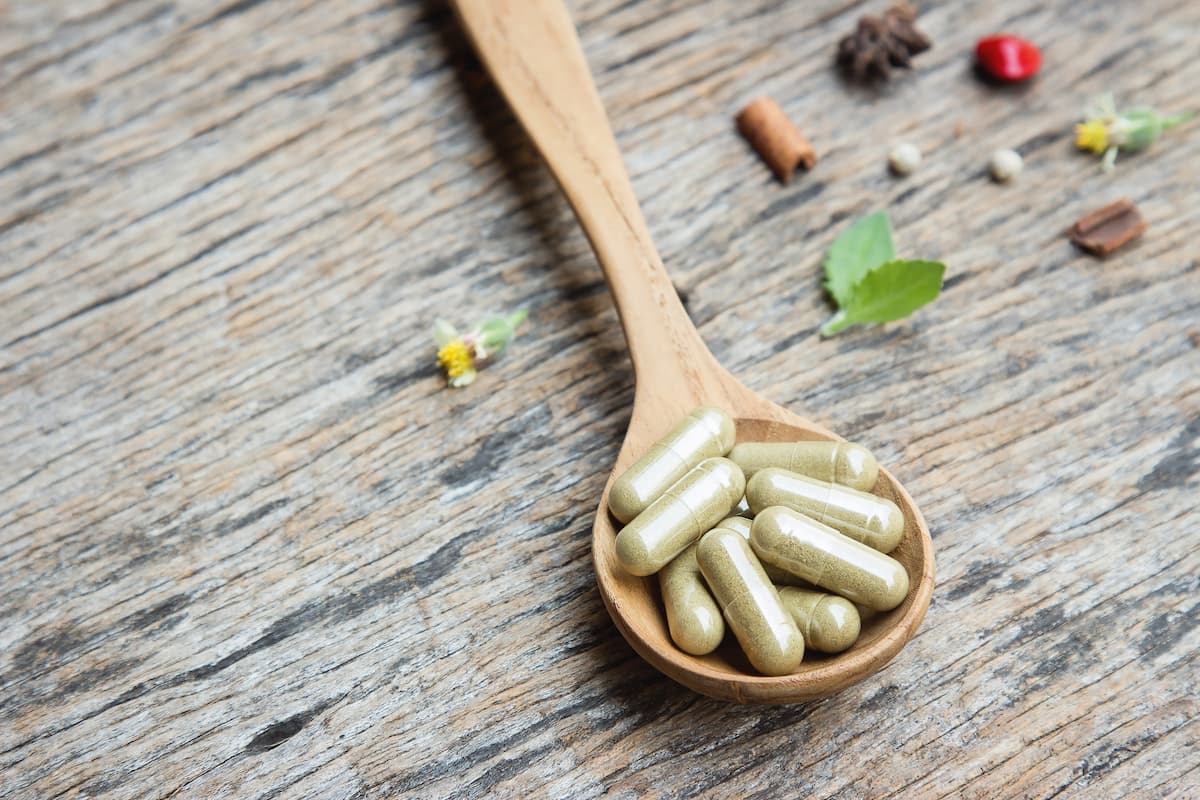
Ashwagandha affects thyroid hormone levels. Find out if you can use it.
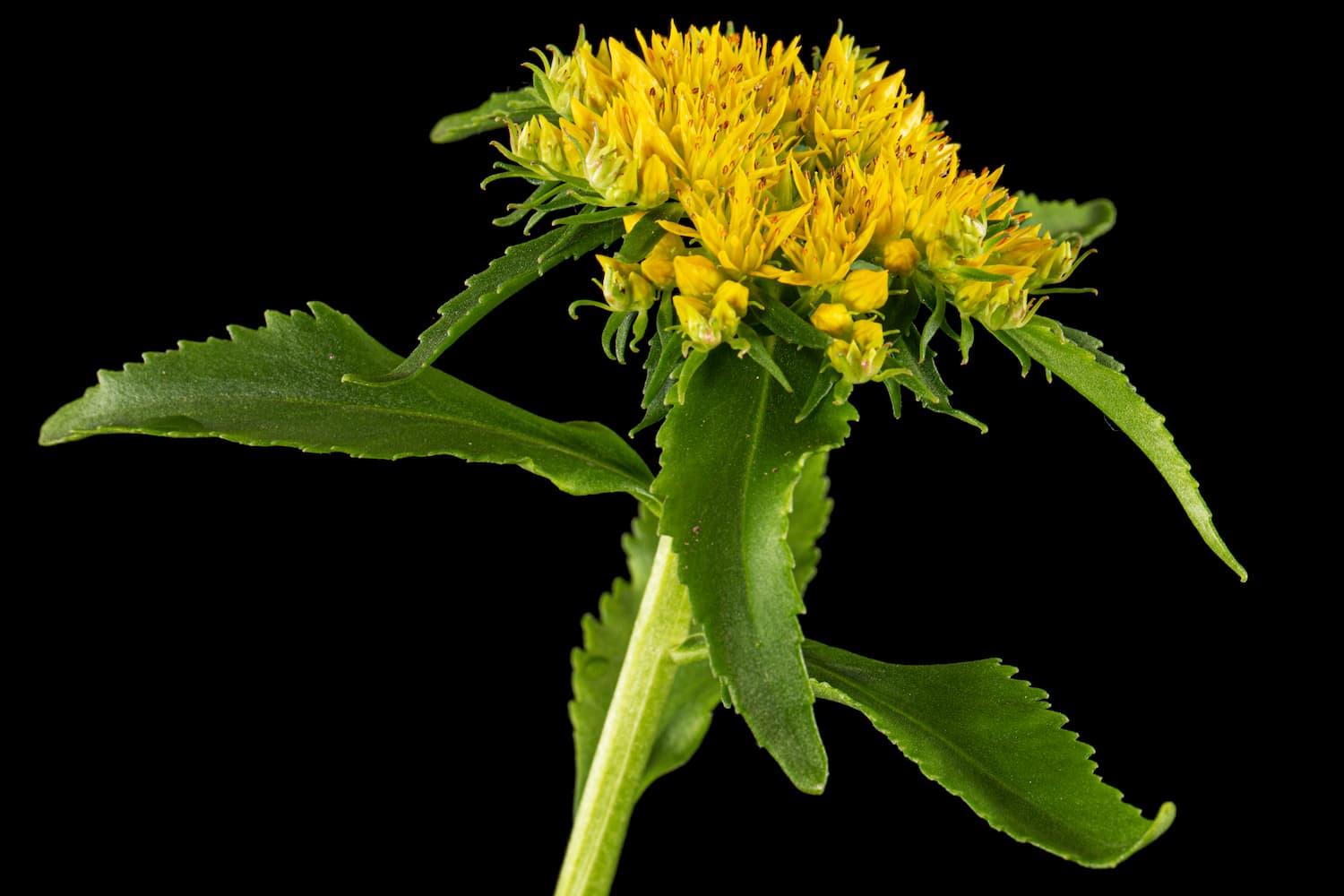
See how mountain pintail can affect your wellbeing.

Check out the opinions of doctors and other professionals about ashwagandha. Also find out what people on the forum think about it.
